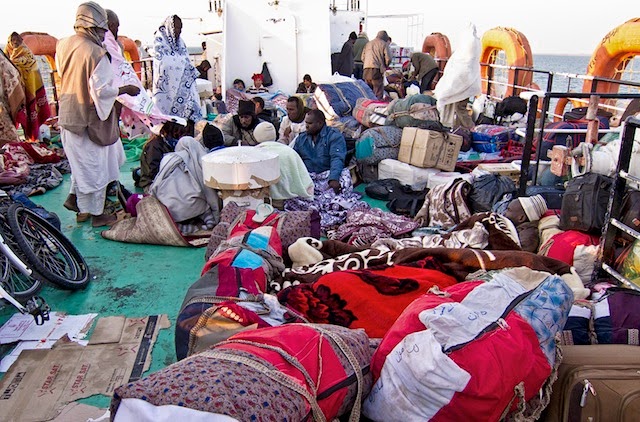Satellite view shows the dam and water reservoir north west of Port Sudan.
Reports from parliamentarians in the Red Sea State suggest that the water supply situation in Port Sudan is desperate.
From Radio Dabanga... as reported on June 12, 2013 at
AllAfrica
A member of the Legislative Council of Red
Sea state, Hamid Idris Suleiman, has warned of "a real disaster in the
coming days" as the water crisis in and around Port Sudan deteriorates
on a daily basis.
"The high temperatures are exacerbating the situation, but the
Khartoum government has not yet come up with any alternative sources or
viable solutions. Suleiman told Radio Dabanga that although the
Legislative Council is well disposed to the Khartoum cause, when Red Sea
State Governor Mohamed Tahir Aila met with President Omar Al Bashir,
"he only came back with promises without solutions".
Suleiman mentions that all Governor Aila returned with was "the
National Congress Party's instruction to Legislative Council members not
to talk about the water crisis again".
"The members of the Legislative Council make no decisions nor have
they any political will other than that of the National Congress Party,
which is run by a group headed by Al Bashir, so I did not expect that
there would be any solutions forthcoming from the Khartoum government,"
he said.
Suleiman expressed surprise at "the efforts of the National Congress
Party leaders in Red Sea state regarding mobilisation for Jihad".
"By opening recruitment camps, focusing on mobilisation and
disregarding the thirst that's threatening their state, they are
forgetting the problems of citizens who are about to die of thirst."
Radio Dabanga reported last month that Red Sea State's Ministry of
Education was to close schools and kindergartens "due to a lack of
drinking water".




